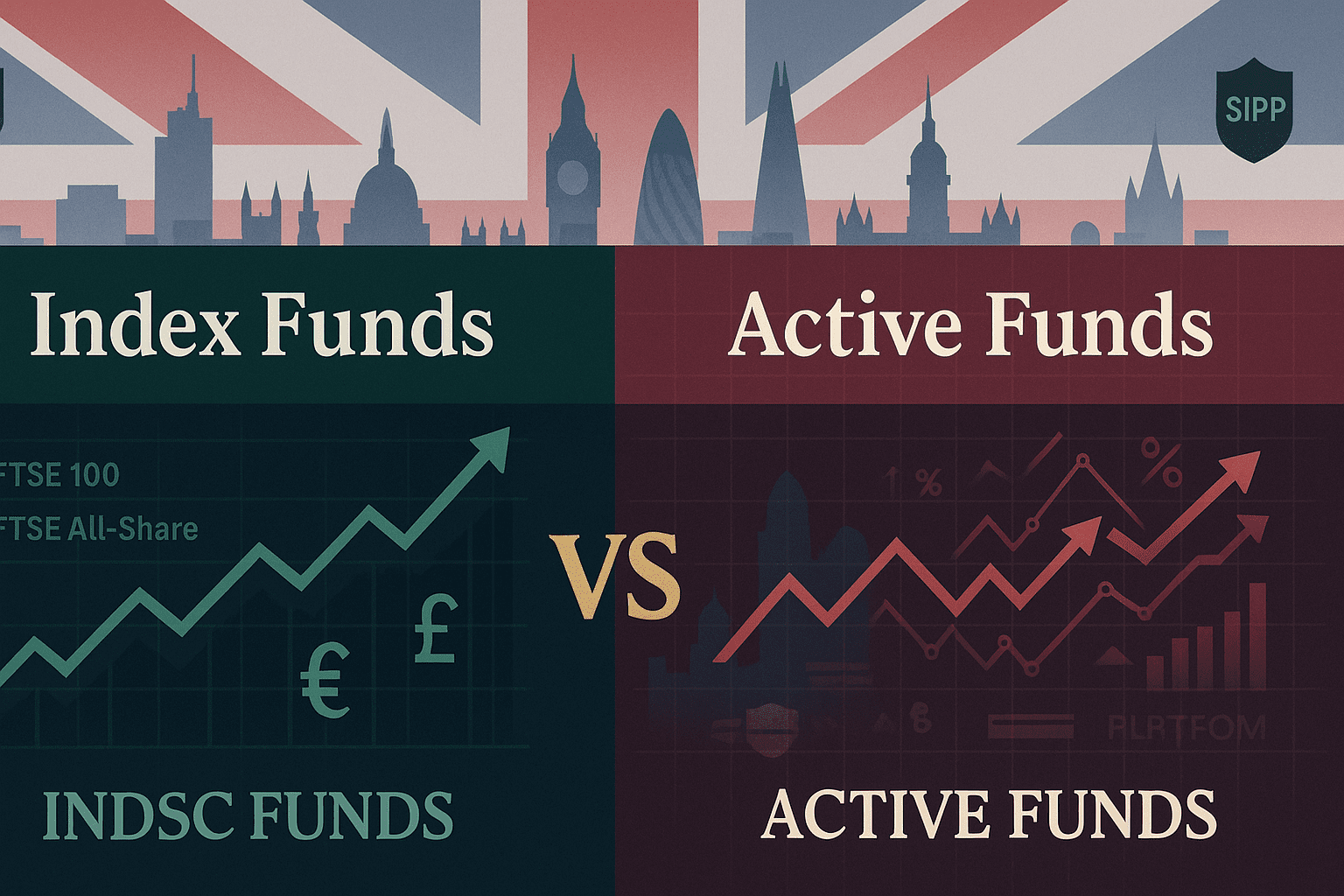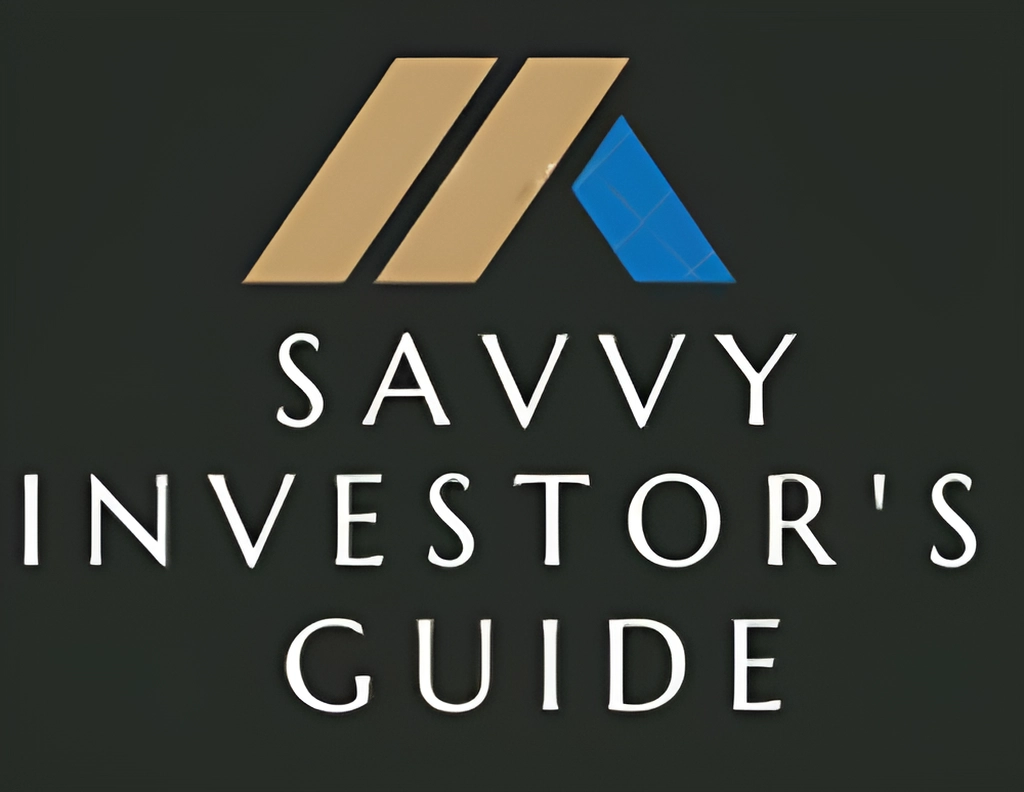Important Disclaimers
Not Financial Advice: This article is for educational and informational purposes only and should not be considered financial, investment, or legal advice. We are not authorised or regulated by the Financial Conduct Authority (FCA). Please consult with a qualified, FCA-authorised financial adviser before making any investment decisions. Past performance does not guarantee future results.
Affiliate Disclosure: Savvy Investor Guide may earn commissions if you open accounts through some of the platform links mentioned in this article. We only recommend platforms we believe provide genuine value to our readers. Our recommendations are based on objective analysis, not commission rates. You will never pay more by using our links.
Tax Information: Tax rules can change and depend on individual circumstances. The information provided reflects the 2024/25 and 2025/26 tax years as of October 2025. Tax treatment depends on your personal situation and may be subject to change. Please consult with a qualified tax adviser or accountant.
Accuracy: While we strive for accuracy, financial products, fees, and regulations change frequently. All information was accurate as of October 2025. Please verify current details directly with service providers before making decisions.
You’re ready to start investing. You’ve heard about index funds and actively managed funds. But which one should you choose for your ISA or SIPP?
Here’s the frustrating part: Most UK investment advice throws around terms like “OCF” and “tracking error” without explaining what any of it means for your actual money.
The truth? The choice between index funds and actively managed funds could cost you tens of thousands of pounds over your investing lifetime. But it’s not as complicated as the financial services industry wants you to think.
🎯 Quick Answer
For 95% of UK investors, index funds win. They cost less (average 0.06-0.15% vs. 0.67-0.75% for actively managed funds), and 82% of active UK equity funds underperform their benchmarks over 10 years.
That said, some actively managed funds make sense in specific situations. This guide shows you exactly when to choose each option for your ISA, SIPP, or general investment account.
📋 What You’ll Learn
- →What Index Funds and Actively Managed Funds Actually Are
- →The 5 Critical Differences That Matter
- →Cost Comparison: The Real Numbers
- →UK Performance Reality Check
- →When to Choose Index Funds (Most People)
- →When to Choose Active Funds (Rare Cases)
- →Best UK Platforms for Index Investing
- →How to Get Started Today
- →Common Questions Answered
What Are Index Funds and Actively Managed Funds?
Let’s cut through the jargon. Both are ways to invest in multiple stocks or bonds at once. But they work very differently in the UK market.
Index Funds: The Autopilot Approach
An index fund is a basket of investments that tracks a specific market index like the FTSE 100, FTSE All-Share, or global indices. Think of it like buying a tiny piece of every company in the FTSE 100 with a single purchase.
How it works: The fund automatically buys what’s in the index. No human tries to pick winners. When Tesco grows, your fund grows. When the FTSE All-Share grows, you grow.
Actively Managed Funds: The Expert Selection Approach
An actively managed fund has a team of managers who actively pick stocks they think will beat the market. They research companies, attend meetings, and make decisions about what to buy and sell.
How it works: Fund managers get paid to outsmart the market. They try to find undervalued stocks and avoid overvalued ones. Sometimes they succeed. Usually they don’t.
The 5 Critical Differences That Matter
Cost Comparison: See Your Real Numbers
The cost difference sounds small. But over time, it’s massive. Use this calculator to see what fees actually cost you in pounds.
💰 Index Fund vs. Active Fund Cost Calculator
UK Performance Reality Check: What the Data Shows
You might think expert fund managers would beat a simple index. The UK data says otherwise.
Here’s what S&P’s SPIVA UK report shows:
- 1 Year: 72% of UK equity funds underperform their benchmark
- 5 Years: 82% of UK equity funds underperform
- 10 Years: 82% of UK equity funds underperform
This isn’t American data applied to the UK. This is actual UK fund performance measured by S&P Dow Jones Indices against UK benchmarks like the FTSE All-Share.
But What About Star Managers?
Some fund managers do beat the market. Scottish Mortgage, Fundsmith Equity, and Lindsell Train UK Equity have delivered strong long-term returns. The problem? You can’t reliably identify them in advance.
Past performance doesn’t predict future results. Many star managers eventually revert to average or below-average performance. Fund groups merge struggling funds into successful ones. Managers retire or move firms.
“The evidence that active money management adds value is pretty overwhelming in failure.” — John Bogle, founder of Vanguard
When to Choose Index Funds (Most People)
Index funds make sense for almost everyone. Here’s when they’re your best choice:
✅ You’re Investing in an ISA or SIPP
Tax-efficient wrappers amplify the benefit of low costs. In an ISA, all your growth is tax-free forever. Why give away 0.60% extra in fees when you could keep it?
With a £20,000 annual ISA allowance and £60,000 SIPP allowance, most UK investors can shelter all their savings tax-efficiently while using index funds to minimize costs.
✅ You’re Building Long-Term Wealth
If you’re investing for retirement or goals 10+ years away, index funds win. The cost savings compound over decades. A 30-year-old investing £500 monthly until retirement would have roughly £50,000 more with index funds than active funds.
✅ You Want UK or Global Exposure
The FTSE All-Share index represents the entire UK stock market. A global index fund gives you exposure to 7,000+ companies worldwide. Why pay someone to try beating that when they probably won’t?
✅ You Value Simplicity
No research required. No wondering if your fund manager is losing their touch. Buy a total market index fund and forget it. Check back in 30 years.
Best UK Platforms for Index Investing
InvestEngine
£0 platform fees for DIY portfolios. 800+ ETF selection. ISA and SIPP available.
Best For: New investors with small portfolios
Costs: £0 platform fee (0.25% for managed)
Open InvestEngine AccountTrading 212
£0 commission on 9,000+ stocks and 1,000+ ETFs. 5.1% interest on cash. Free ISA.
Best For: Active traders and index investors
Costs: £0 (earns from FX and securities lending)
Open Trading 212 AccountInteractive Investor
Flat £11.99/month fee. One free trade monthly. All account types included.
Best For: £50,000+ portfolios
Costs: £143.88 per year (all accounts)
Open ii AccountVanguard UK
Direct access to Vanguard’s low-cost funds. £4/month minimum (£48/year) or 0.15% on larger portfolios.
Best For: Vanguard fund investors with £32,000+
Costs: Greater of £4/month or 0.15% (capped at £375/year)
Open Vanguard AccountAJ Bell
24,200+ investment options. 0.25% on funds, capped at £42/year for ISA ETFs.
Best For: ETF investors wanting choice
Costs: 0.25% capped (£42 ISA, £120 SIPP)
Open AJ Bell AccountHargreaves Lansdown
UK’s largest platform. Excellent research and tools. Premium pricing.
Best For: Investors wanting full-service support
Costs: 0.45% on funds (declining tiers above £250k)
Open HL AccountWhen to Choose Actively Managed Funds (Rare Cases)
There are legitimate reasons to pick an actively managed fund. They’re just rare.
🎯 You’re Investing in UK Small-Caps
The UK small-cap category shows better active management results, with 93% outperforming in the first half of 2024. Smaller companies with less analyst coverage may reward skilled stock pickers. Consider active management here if you understand the risks.
🎯 You Need Specialist Exposure
Want to invest in UK renewable energy infrastructure? Small-cap Indian technology companies? Some specialized areas lack index fund options. An actively managed fund or investment trust might be your only choice. But keep this to a small part of your portfolio (10-20% maximum).
🎯 Your Workplace Pension Has Low-Cost Active Options
Some employer pension schemes offer institutional share classes of active funds with OCFs of 0.30% or less—similar to index fund costs. If your workplace pension offers quality active funds at index-like prices, and includes generous employer matching, that could work.
How to Get Started Today
Ready to invest? Here’s your step-by-step action plan for UK investors.
Step 1: Choose the Right Tax Wrapper
For most people, this priority order makes sense:
- Workplace pension to employer match: Free money (typically 3-5% contribution)
- Stocks & Shares ISA: £20,000 annual allowance, completely tax-free growth
- SIPP contributions: £60,000 annual allowance with 20-45% tax relief
- General Investment Account: Only after exhausting ISA/SIPP allowances
Open accounts at InvestEngine, Trading 212, or Interactive Investor depending on your portfolio size and needs.
Step 2: Choose Your Index Funds
Start simple. A three-fund portfolio covers everything:
-
UK Total Stock Market (20-40% of portfolio)
- Vanguard FTSE UK All Share Index (0.06% OCF)
- Legal & General UK Index Trust (0.05% OCF)
- iShares Core FTSE 100 ETF (0.07% OCF)
-
Global Stock Market (50-70% of portfolio)
- Vanguard FTSE Global All Cap Index (0.23% OCF)
- Vanguard FTSE Developed World ex-UK (0.15% OCF)
- Vanguard FTSE All-World ETF (0.22% OCF)
-
UK Bond Market (10-20% of portfolio, more as you near retirement)
- Vanguard UK Government Bond Index (0.12% OCF)
- Vanguard UK Investment Grade Bond Index (0.12% OCF)
Step 3: Set Up Regular Investing
The secret to building wealth isn’t picking the perfect fund. It’s investing consistently through pound-cost averaging.
Set up a Direct Debit to your ISA or SIPP. Invest automatically each month, regardless of market conditions. This removes emotion and ensures you buy more shares when prices are low, fewer when prices are high.
Start with whatever you can afford. £100 per month beats £0 per month.
Step 4: Ignore the Noise
The FTSE 100 will crash. The Daily Mail will scream about market turmoil. Your mate will brag about their crypto gains. Ignore it all.
Check your accounts once per quarter. Rebalance once per year if your allocation has drifted more than 5%. Otherwise, live your life.
The UK stock market has delivered approximately 5-7% real returns (after inflation) over the past century. Global markets have done similarly. Stay invested, keep costs low, and let compound growth work.
The Bottom Line: Index Funds Win for Most UK Investors
The evidence is overwhelming. For UK investors, index funds give you:
- Lower costs (save £50,000+ over a lifetime of investing)
- Better performance (beat 82% of active UK equity funds over 10 years)
- Simplicity (no fund manager selection or performance monitoring required)
- Tax efficiency (less trading = lower CGT in taxable accounts)
- Transparency (always know exactly what you own)
- Perfect fit for ISAs and SIPPs (maximize tax-free growth)
Actively managed funds made more sense before index funds became widely available in the UK. Now they’re an expensive relic for most investors, justified only in specialized situations like small-caps or niche sectors.
🚀 Your Next Step
Don’t let analysis paralysis stop you. Pick one platform. Open one ISA. Buy one index fund. Start today.
The best time to start investing was 20 years ago. The second best time is right now.
Frequently Asked Questions
📚 Keep Learning
Want to dive deeper into smart investing strategies for UK investors? Check out these guides:

